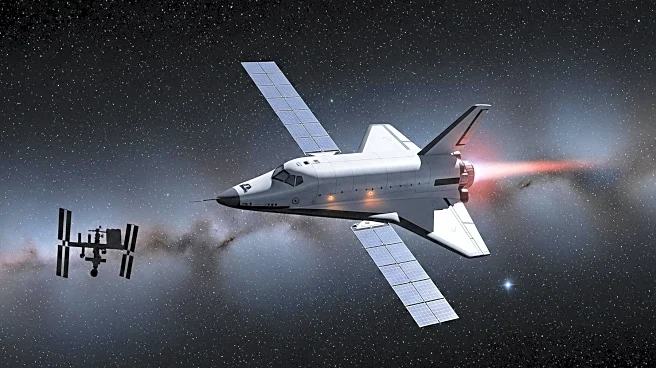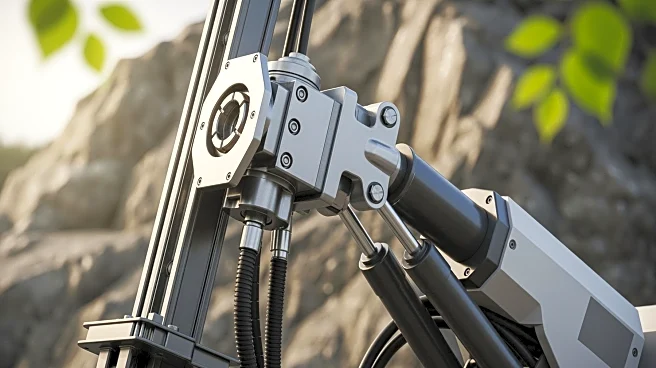What's Happening?
NASA has delayed the arrival of Northrop Grumman's Cygnus XL spacecraft at the International Space Station (ISS) due to a thruster problem. The spacecraft's main engine shut down prematurely during orbit-raising burns, preventing its scheduled docking. The Cygnus XL, launched on a SpaceX Falcon 9 rocket, carries about 5,000 kilograms of cargo, including scientific investigations and supplies. Despite the thruster issue, all other systems of the Cygnus XL are functioning normally. NASA and Northrop Grumman are investigating the problem to determine a new arrival date.
Why It's Important?
The delay in the Cygnus XL's arrival at the ISS impacts the timely delivery of essential supplies and scientific materials, which are crucial for the station's operations. The Cygnus XL, being a larger version of the Cygnus spacecraft, offers increased cargo capacity, enhancing the efficiency of resupply missions. The propulsion issue highlights the challenges in space logistics and the importance of reliable systems to ensure mission success and continuity of research at the ISS.
What's Next?
NASA and Northrop Grumman are reviewing the situation to determine the cause of the thruster issue and establish a new arrival date for the Cygnus XL. The resolution of this issue is critical for maintaining the supply chain to the ISS, and stakeholders will be closely monitoring the developments to prevent similar occurrences in future missions.
Beyond the Headlines
The incident may lead to further evaluations of spacecraft propulsion systems and design, potentially influencing future advancements in space engineering and logistics. It also underscores the collaborative efforts between NASA and commercial partners in enhancing space exploration capabilities.









